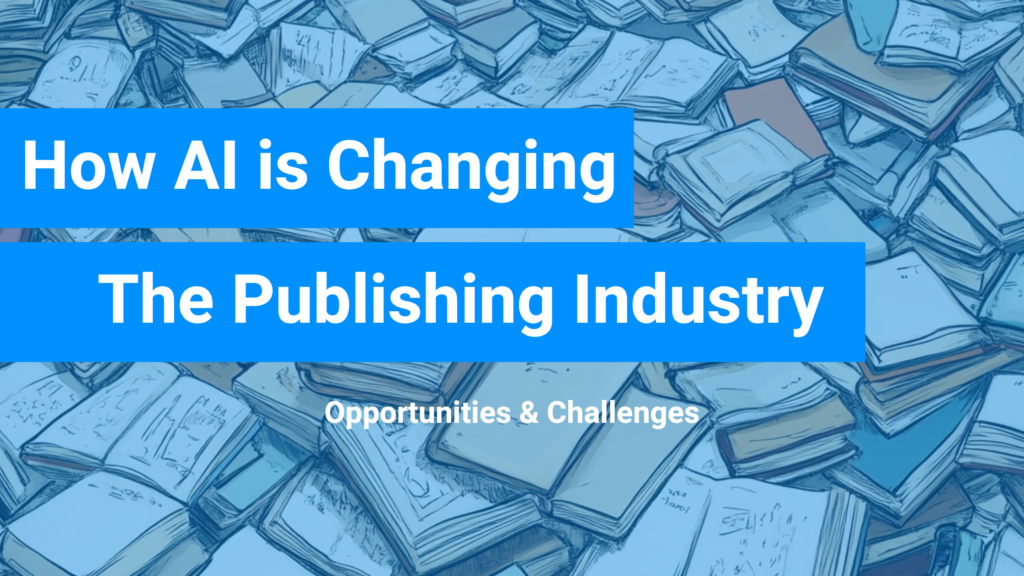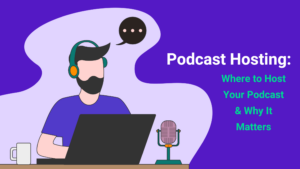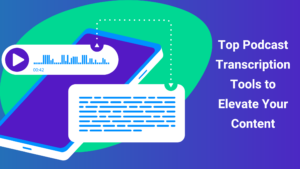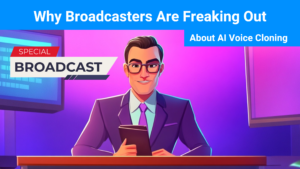Artificial intelligence (AI) is no longer a futuristic concept—it’s here, and it’s transforming industries, including publishing. For publishers, AI offers powerful tools to streamline workflows, improve efficiency, and open new avenues for creativity. However, its adoption hasn’t come without concerns. Many publishers worry that AI could lead to a flood of low-quality content, diluting the value of human-created work.
In this blog, we’ll explore how AI is changing the publishing industry, how publishers are and can leverage AI successfully today, and how tools like Podcraftr align with these evolving practices.
How Publishers Are Using AI Today
1. Automating Repetitive Tasks
One of the most significant benefits of AI is its ability to take over time-consuming tasks like editing, formatting, and proofreading. Publishers are using tools like Grammarly or ProWritingAid to refine manuscripts and articles faster. This automation ensures consistency and frees up editors to focus on creative, high-value tasks.
Example:
A major news organization uses AI to sift through thousands of user-submitted articles, flagging errors and inconsistencies before a human editor reviews them. This ensures quality while significantly reducing turnaround time.
2. Enhancing Accessibility
AI-driven tools like text-to-speech software and voice cloning technologies are helping publishers reach wider audiences, including those with visual impairments or learning disabilities. By converting written content into audio, publishers make their work more accessible to everyone.
Example:
An educational publisher uses AI to create audio versions of textbooks, helping students with different learning preferences or needs. This parallels Podcraftr’s approach to podcasting, where written content like blog posts or newsletters can be instantly transformed into audio.
3. Personalizing Reader Experiences
AI algorithms analyze reader data to suggest personalized content, much like how Spotify recommends playlists or Netflix suggests shows. Publishers can now tailor newsletters, recommend books, or even curate entire reading lists based on individual preferences.
Example:
A digital magazine uses AI to analyze what articles readers click on most, creating personalized newsletters that improve engagement and retention.
4. Streamlining Content Repurposing
AI is changing the publishing industry through new ways of repurposing content. Publishers use AI to transform existing materials—like blog posts, books, or articles—into new formats such as videos, social media posts, or podcasts.
This is exactly where Podcraftr shines. Podcraftr turns written content into studio-quality podcasts in minutes, allowing publishers to expand their reach into the growing audio content market. Think of it as the equivalent of turning a book into an audiobook—but without relying on human narrators to get the job done.
Example:
A lifestyle blog repurposes its top-performing articles into podcasts using Podcraftr, reaching a younger, on-the-go audience.
5. Improving Translation and Localization
Expanding globally often requires content translation, a task that AI has made faster and more cost-effective. Tools like DeepL or Google Translate are helping publishers localize their works for international audiences while preserving tone and intent.
Example:
A small independent publisher uses AI to translate their titles into multiple languages, making their catalog available in markets they couldn’t previously access.
AI is Changing the Publishing Industry: Real-World Examples
These real-world examples prove that AI is changing the publishing industry.
Forbes: Bertie and Adelaide Content Recommendations
Forbes uses AI tools like Bertie and Adelaide to enhance content creation and discovery. Bertie helps contributors craft engaging articles with headline, topic, and improvement suggestions based on trends. Adelaide personalizes the user experience by using natural conversations to understand interests and connect readers with relevant content. Together, they ensure Forbes delivers impactful, audience-focused journalism.
The Washington Post: “Heliograf” AI Bot
The Washington Post developed Heliograf, an AI-powered bot that creates short news articles and updates. It was notably used during the 2016 Rio Olympics to generate real-time sports updates, ensuring comprehensive coverage with minimal human input.
AI is Changing the Publishing Industry: Addressing Common Concerns
AI Doesn’t Guarantee an Audience
One hesitation publishers have about AI is that it might lower barriers to entry so much that low-quality work floods the market. While it’s true that AI makes it easier to publish, it doesn’t make it easier to attract readers or listeners. Quality still matters.
At Podcraftr, we emphasize this distinction: just like AI makes it easier to publish a book, our platform makes it easier to produce a podcast. But quality content is what will keep your audience coming back. The tools are here to help you get started, but success comes from YOUR vision and creativity.
AI is a Tool, Not a Creator
AI can support creativity, but it doesn’t replace it. Concerns about AI pushing out low-quality works stem from misunderstanding its role. AI simplifies production processes—it doesn’t define the quality of the final product.
Podcraftr’s approach mirrors this philosophy. We’re like the audiobook narrator for your podcast—turning your content into audio without needing a studio or a human narrator. The creative direction is still entirely yours. By focusing on human-driven content enhanced by AI tools, publishers can maintain their standards while leveraging the efficiency AI offers.
Why Publishers Should Embrace AI Thoughtfully
For publishers, the key to using AI successfully lies in thoughtful implementation:
- Maintain Quality Standards: AI can handle repetitive tasks, but creative oversight ensures the final product meets audience expectations.
- Leverage AI for Efficiency: Focus on tools that streamline your workflow, like Podcraftr for audio production or Grammarly for editing, freeing up time for strategic and creative endeavors.
- Engage Audiences Across Platforms: Use AI to expand your reach—whether it’s by personalizing newsletters or turning written content into podcasts.
By embracing AI as a collaborative tool, publishers can enhance their workflows and create more opportunities to connect with their audiences without compromising quality.
AI is Changing the Publishing Industry
The publishing industry’s hesitations about AI are understandable, but its benefits are undeniable. From accessibility to audience engagement, AI publishing offers tools that can help publishers scale their impact.
With platforms like Podcraftr, AI publishing becomes more accessible without sacrificing creative control. It’s not about replacing human ingenuity—it’s about giving it the tools to thrive. Ready to explore what AI can do for your publishing workflow? Try Podcraftr today and see how we can help you expand your reach effortlessly.




